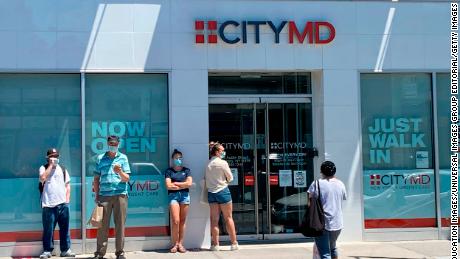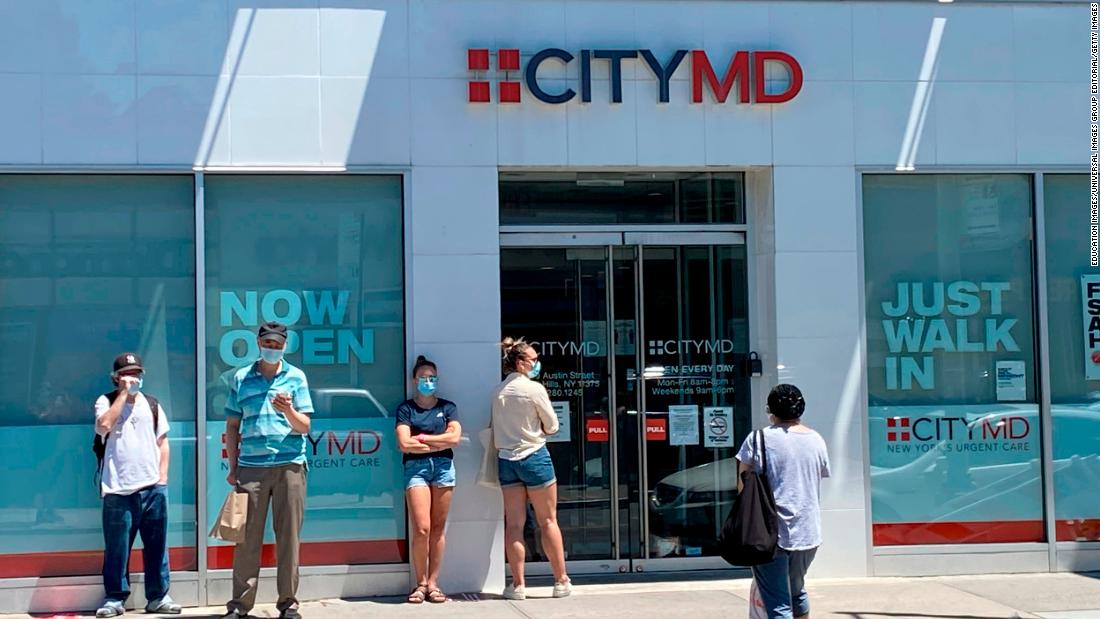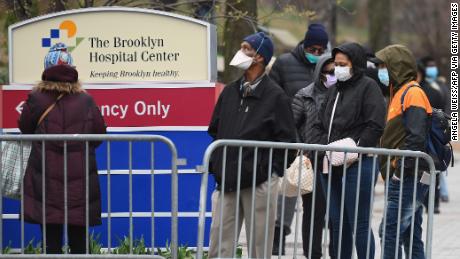New York: 68% of a clinic’s patients test positive for antibodies
But that data doesn’t mean those who have antibodies are immune.


People form a line outside of the CityMD clinic in Forest Hills, Queens, New York.
While these two working-class neighborhoods saw high numbers for their antibody tests, only 13% of people tested positive for antibodies at a clinic in Cobble Hill, a mostly white and wealthy neighborhood in Brooklyn. The data suggest that while minority and working-class communities were hit hard by the virus, they may be first to build immunity.
“When you’re looking at a large population of people and a large percentage of those people are technically immune to a virus, you could start thinking it’ll be almost impossible for the virus to penetrate and for people to get sick,” said Dr. Daniel Frogel, senior vice president of medical operations at CityMD.
Frogel said the real question now is whether these antibodies truly mean these communities are immune.
“Are they actually protective? How long do they last for? We have to be very careful about what kind of advice we’re giving,” Frogel said. “We can’t tell people to act differently, to not protect themselves, to not wash their hands, to not wear masks.”
Even though the majority of people tested in those clinics had antibodies, that data do not reflect how many people in the neighborhoods themselves may have antibodies because some patients in the clinics may not live in the neighborhoods where the clinics are located.
As of June 12, hospitalization rates among Black and American Indian or Alaska Native people were about five times that of White people, according to the US Centers for Disease Control and Prevention. Hispanic or Latino people have a rate about four times that of White people.
CNN’s Maggie Fox contributed to this report.
![]()




